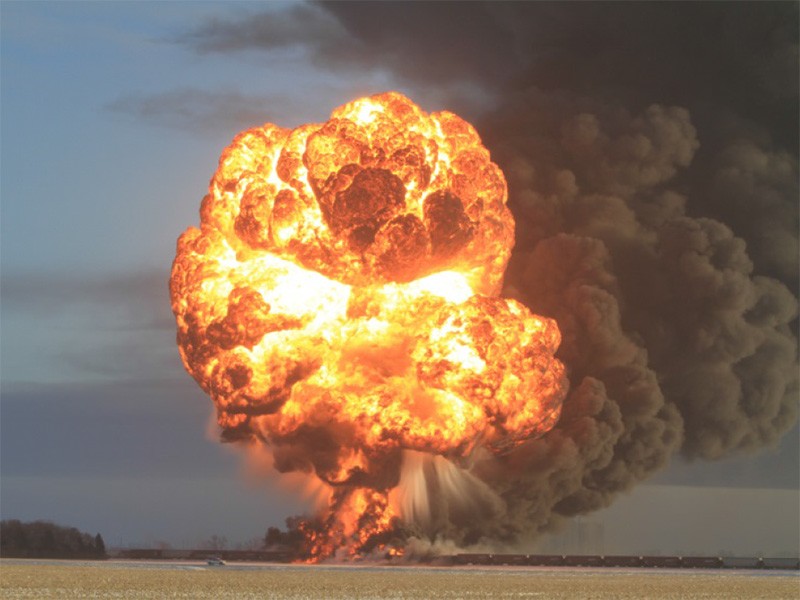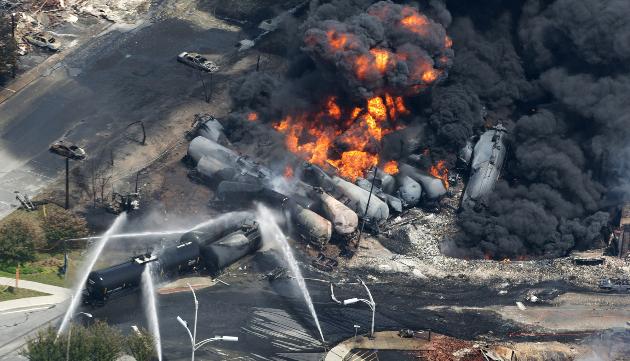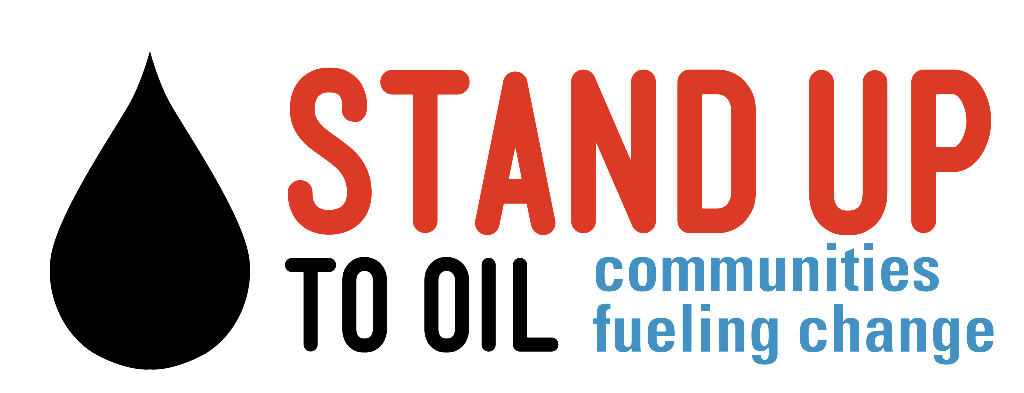Oil Trains

Explosive oil train derailments have sparked international concern about the huge increase in oil-by-rail shipments: unit trains that can be up to a mile-and-a-half long and haul more than 100 tank cars each. Today, about three oil trains of crude oil go through our region per day. But if all proposed terminals were built, that number would increase to more than 14 fully-loaded oil trains every day.
Oil trains run right through many Northwest cities and towns passing close to schools, hospitals, shopping malls and storefronts.
Oil train spills hit record levels in 2014. In 2013 more oil spilled from trains into rivers, lakes, and marine waters than in the previous forty years combined. And the number of train derailments has continued to rise, including the July 2013 tragedy in Lac- Megantic, Quebec, where 47 people died.
The tank cars that split open and burst into flames in Illinois in March 2015 were retrofitted to meet a higher safety standard than federal law requires according to railroad officials. The oil cars that derailed in West Virginia in February 2015, leaking oil into the Kanahwa River and burning down a house, were the newer 1232 cars that were supposed to be safer than the older DOT-111 models blamed for previous accidents.
The federal government predicts that trains hauling crude oil or ethanol will derail an average of 10 times a year over the next two decades, causing more than $4 billion in damage and possibly killing hundreds of people if an accident happens in a densely populated area.
Along with greater risk of major accidents, the huge potential increase in oil trains means a big jump in rail traffic, more delays at rail crossings, slower emergency response times, more diesel fume pollution and taxpayer costs to pay for infrastructure to make way for all those trains.
If proposed oil and coal terminals are built in Washington State, we estimate that many communities along the rail line such as Spokane and Vancouver would see 30 or more loaded oil and coal trains every single day.
Sources and Links:
Oil train spills hit record levels in 2014
Report: Oil-by-rail continues sharp rise, could soar in Washington state
Fiery oil train derailment in western Illinois involved tank cars built to safer standard
Spate of derailments in the US, Canada deepens fear of possible oil train disaster
For Oregon, 4 oil train accidents in 3 weeks a reminder ‘this issue is not going away’
Spokane seeks seat at talks on proposed Vancouver oil terminal
Oil Train Derailments Report (compiled by Barry Cain)
Washington State 2014 Marine and Rail Oil Transportation Study

. . . it is much easier to prevent these situations than respond to them. . . it would be better not to transport hazardous materials through the community. In the case of Bakken crude, that is a product that we would prefer not to have spill or crash in Spokane County.”
Brian Schaeffer